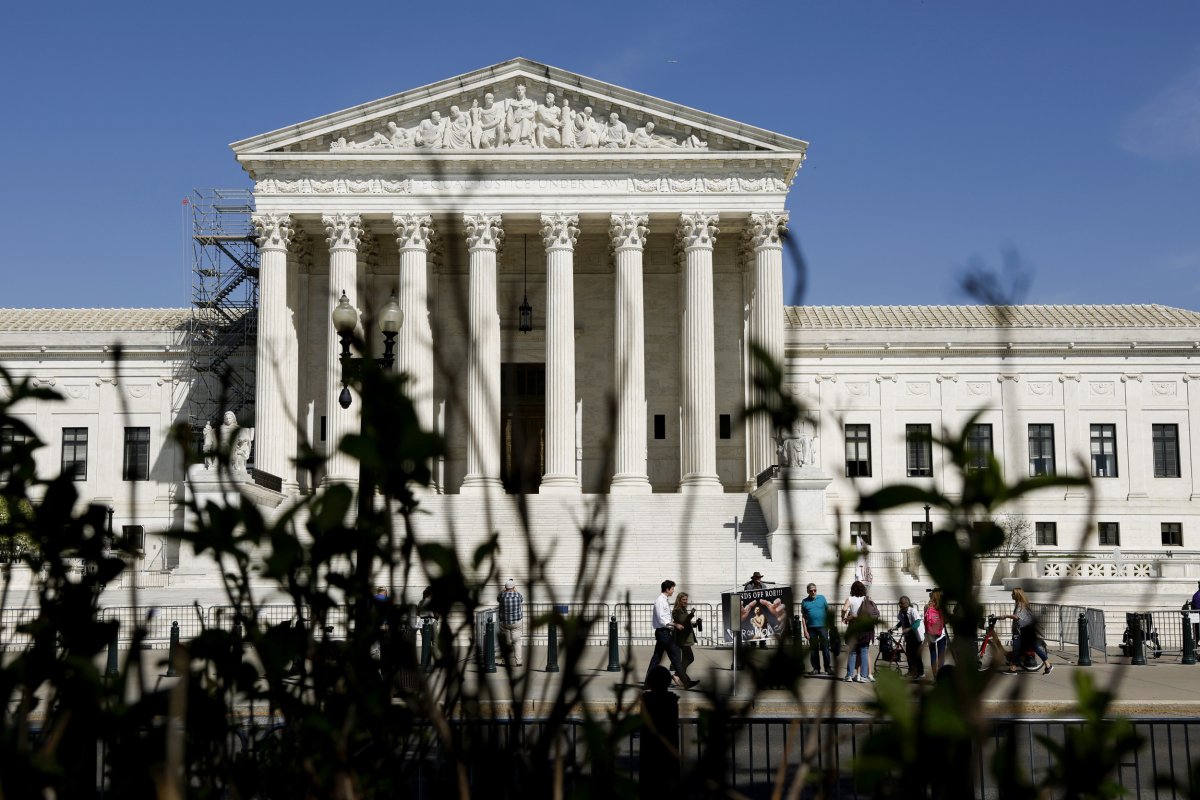On Tuesday, the Supreme Court will hear a case on whether a statute that prohibits the possession of firearms by people under domestic violence restraining orders is unconstitutional.
Research has found that access to a gun increases the risk of killings in domestic violence cases. “American women are killed by intimate partners (husbands, lovers, ex-husbands, or ex-lovers) more often than by any other type of perpetrator. Intimate partner homicide accounts for approximately 40% to 50% of US femicides but a relatively small proportion of male homicides (5.9%),” according to the Department of Justice.
The case stems from a conviction against defendant Zackey Rahimi. The Texas man was found guilty of gun possession when he had a domestic violence protective order issued against him. Rahimi was involved in five shootings between December 2020 and January 2021, according to a filing by the United States Court of Appeals for the Fifth Circuit.
The case follows another gun-rights-related case last year—New York State Rifle & Pistol Association, Inc. v. Bruen. The Supreme Court then ruled that a New York state law that mandates a person show proper cause when applying for a concealed carry firearm permit was unconstitutional because it violated the 14th Amendment.
Rahimi challenged the law and earlier this year, the United States Court of Appeals for the Fifth Circuit agreed with him, citing the Bruen judgment.
“The question presented in this case is not whether prohibiting the possession of firearms by someone subject to a domestic violence restraining order is a laudable policy goal,” the Fifth Circuit wrote in its ruling.
The judges looked to examine whether the law, in existence for three decades, violated the 2nd Amendment.
The court judged that it did.
“We conclude that Bruen requires us to reevaluate our 2nd Amendment jurisprudence and that under Bruen, [the case] fails to pass constitutional muster. We therefore reverse the district court’s ruling to the contrary and vacate Rahimi’s conviction,” the United States Court of Appeals for the Fifth Circuit concluded.
The judges added: “Rahimi, while hardly a model citizen, is among ‘the people’ entitled to the Second Amendment’s guarantees, all other things equal.”
The Solicitor General Elizabeth Prelogar, representing the government, in her reply brief, argued that the statute in question exists in some version by states across the country.
“Rahimi asserts that the Second Amendment bars that widespread, sensible response to the deadly toll of domestic violence, but he offers no historical evidence to support his position, which contradicts this Court’s precedent, the Second Amendment’s original meaning, and our Nation’s tradition of firearms regulation,” she wrote.
Prelogar argued that the Fifth Circuit misread precedent and warned against its “dangerous” and “destabilizing implications.”
“This Court should correct that misreading and reverse,” she implored of the Supreme Court.
In response to a request for comment, the National Rifle Association (NRA) directed Newsweek to its own brief:
“Rahimi should not only lose his Second Amendment liberties, but he should also lose all of his liberties—if the allegations against him are ultimately proven true with sufficient due process. But constitutional safeguards cannot be set aside to obtain those ends,” the NRA wrote.
Some analysts argue that the case could potentially validate the statute that those with domestic violence orders should be barred from owning a gun, Kelly Roskam, the director of law and policy at the Johns Hopkins Center for Gun Violence Solutions, wrote.
Gun safety group Moms Demand Action told Newsweek through the Rahimi case, the Supreme Court has a chance to ensure the protection of women from abusers.
“The Court has a choice to make: give the gun lobby what they want in their all-out assault on public safety or protect survivors. The choice should be simple—the Supreme Court must reverse the Rahimi decision,” Angela Ferrell-Zabala, executive director of Moms Demand Action, told Newsweek in a statement.

ANNA MONEYMAKER/GETTY IMAGES
Uncommon Knowledge
Newsweek is committed to challenging conventional wisdom and finding connections in the search for common ground.
Newsweek is committed to challenging conventional wisdom and finding connections in the search for common ground.

